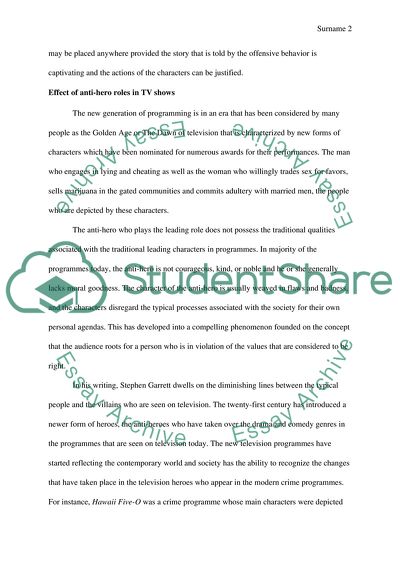Cite this document
(The Character of the Antihero on the TV Term Paper, n.d.)
The Character of the Antihero on the TV Term Paper. Retrieved from https://studentshare.org/media/1844176-how-to-think-these-anti-hero-roles-in-tv-shows-good-or-bad-effects-on-audience-as-a-part-of-popular-culture-in-society
The Character of the Antihero on the TV Term Paper. Retrieved from https://studentshare.org/media/1844176-how-to-think-these-anti-hero-roles-in-tv-shows-good-or-bad-effects-on-audience-as-a-part-of-popular-culture-in-society
(The Character of the Antihero on the TV Term Paper)
The Character of the Antihero on the TV Term Paper. https://studentshare.org/media/1844176-how-to-think-these-anti-hero-roles-in-tv-shows-good-or-bad-effects-on-audience-as-a-part-of-popular-culture-in-society.
The Character of the Antihero on the TV Term Paper. https://studentshare.org/media/1844176-how-to-think-these-anti-hero-roles-in-tv-shows-good-or-bad-effects-on-audience-as-a-part-of-popular-culture-in-society.
“The Character of the Antihero on the TV Term Paper”, n.d. https://studentshare.org/media/1844176-how-to-think-these-anti-hero-roles-in-tv-shows-good-or-bad-effects-on-audience-as-a-part-of-popular-culture-in-society.


